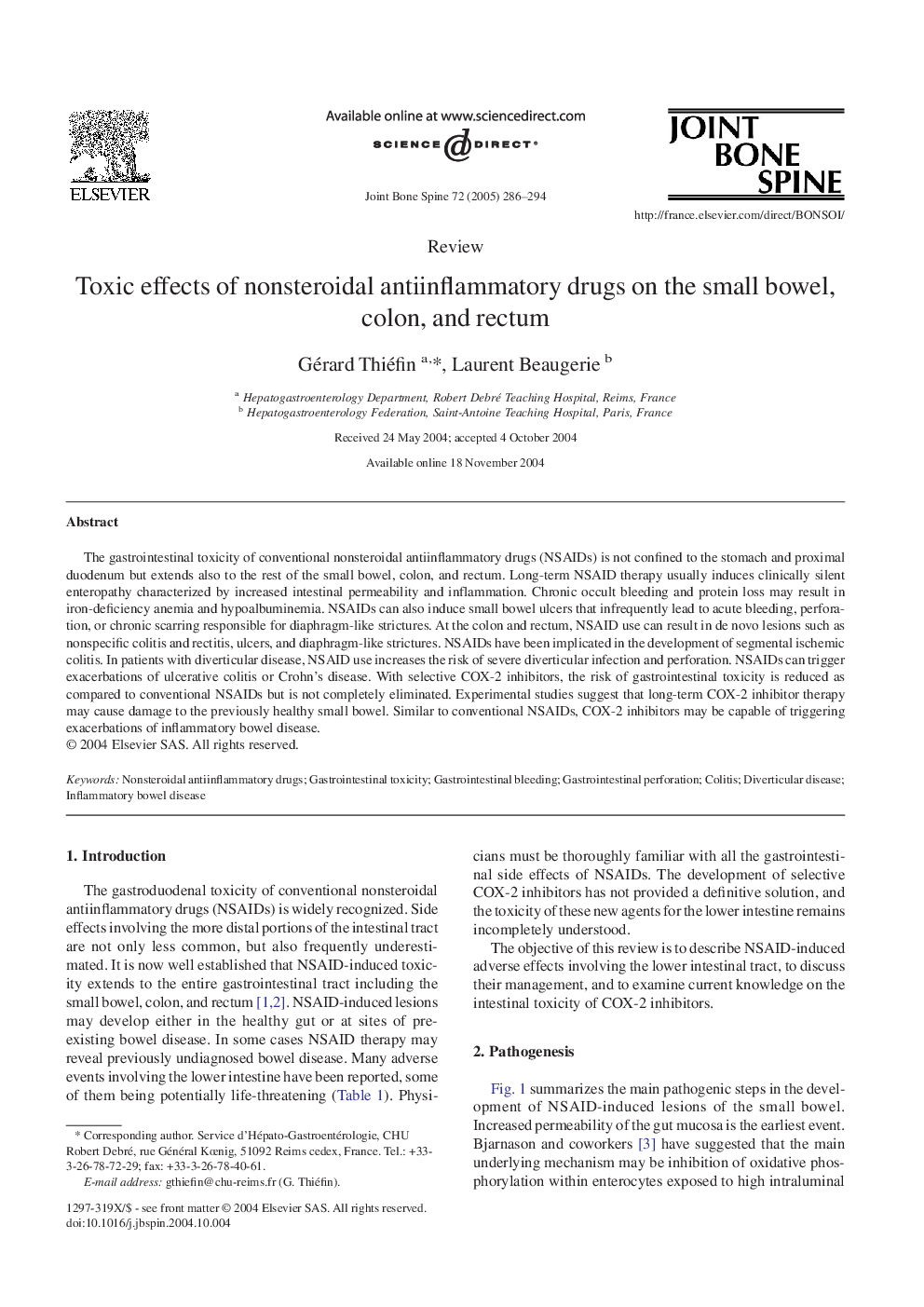| کد مقاله | کد نشریه | سال انتشار | مقاله انگلیسی | نسخه تمام متن |
|---|---|---|---|---|
| 9267220 | 1218437 | 2005 | 9 صفحه PDF | دانلود رایگان |
عنوان انگلیسی مقاله ISI
Toxic effects of nonsteroidal antiinflammatory drugs on the small bowel, colon, and rectum
دانلود مقاله + سفارش ترجمه
دانلود مقاله ISI انگلیسی
رایگان برای ایرانیان
کلمات کلیدی
Colitis - التهاب روده بزرگDiverticular disease - بیماری دیورتیکولیInflammatory bowel disease - بیماریهای التهابی رودهGastrointestinal bleeding - خونریزی دستگاه گوارشnonsteroidal antiinflammatory drugs - داروهای ضدالتهاب غیر استروئیدیGastrointestinal perforation - سوراخ شدن دستگاه گوارشGastrointestinal toxicity - مسمومیت دستگاه گوارش
موضوعات مرتبط
علوم پزشکی و سلامت
پزشکی و دندانپزشکی
ایمونولوژی، آلرژی و روماتولوژی
پیش نمایش صفحه اول مقاله

چکیده انگلیسی
The gastrointestinal toxicity of conventional nonsteroidal antiinflammatory drugs (NSAIDs) is not confined to the stomach and proximal duodenum but extends also to the rest of the small bowel, colon, and rectum. Long-term NSAID therapy usually induces clinically silent enteropathy characterized by increased intestinal permeability and inflammation. Chronic occult bleeding and protein loss may result in iron-deficiency anemia and hypoalbuminemia. NSAIDs can also induce small bowel ulcers that infrequently lead to acute bleeding, perforation, or chronic scarring responsible for diaphragm-like strictures. At the colon and rectum, NSAID use can result in de novo lesions such as nonspecific colitis and rectitis, ulcers, and diaphragm-like strictures. NSAIDs have been implicated in the development of segmental ischemic colitis. In patients with diverticular disease, NSAID use increases the risk of severe diverticular infection and perforation. NSAIDs can trigger exacerbations of ulcerative colitis or Crohn's disease. With selective COX-2 inhibitors, the risk of gastrointestinal toxicity is reduced as compared to conventional NSAIDs but is not completely eliminated. Experimental studies suggest that long-term COX-2 inhibitor therapy may cause damage to the previously healthy small bowel. Similar to conventional NSAIDs, COX-2 inhibitors may be capable of triggering exacerbations of inflammatory bowel disease.
ناشر
Database: Elsevier - ScienceDirect (ساینس دایرکت)
Journal: Joint Bone Spine - Volume 72, Issue 4, July 2005, Pages 286-294
Journal: Joint Bone Spine - Volume 72, Issue 4, July 2005, Pages 286-294
نویسندگان
Gérard Thiéfin, Laurent Beaugerie,